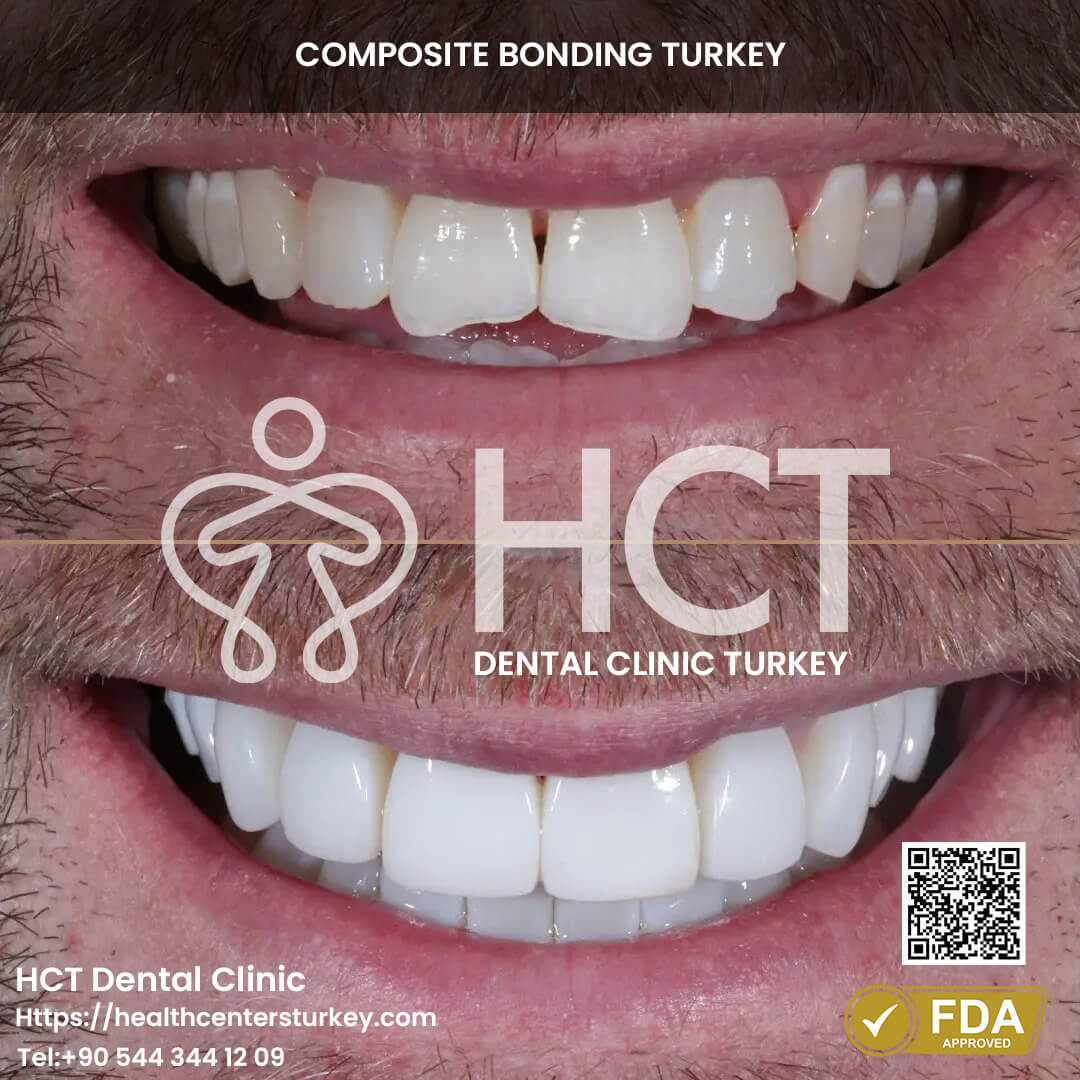Benefit from World-Class Oral Care on Your Trip
Tailored Dental Care in Turkey
Dental implants have become a well-liked resolution for those seeking to replace missing teeth. Understanding how these implants can affect adjacent teeth is important for anybody considering this process, as nicely as for dentists and specialists involved in dental care.

One important facet is that dental implants are designed to be anchored into the jawbone, which means they're unbiased of adjacent teeth. Unlike dental bridges, which often require the alteration of neighboring teeth, implants can fill the hole without compromising the health or structure of these surrounding teeth.
This independence helps keep the integrity of adjacent teeth. When a tooth is misplaced, there could be a natural tendency for neighboring teeth to tilt or shift into the empty space. Such motion can lead to misalignment, which can affect bite and total oral health. By putting an implant, you successfully prevent this potential shift, promoting better alignment in the long run.
Affordable Teeth Transformations available in Turkey
Additionally, dental implants assist keep bone density in the jaw. A natural tooth root offers stimulation to the surrounding bone, preserving it healthy and robust. When a tooth is missing, the bone can begin to deteriorate because of lack of stimulation. With a dental implant mimicking a natural root, bone loss could be minimized, which not directly benefits adjacent teeth by preserving the general structure of the dental arch.
While dental implants are advantageous, improper placement can impact neighboring teeth. If an implant is positioned too shut to another tooth, it may exert undue pressure on that tooth, resulting in discomfort or potential damage. Proper planning and imaging methods are important for avoiding such issues.
What Makes Turkey Dental Treatments
Moreover, sustaining good oral hygiene is essential after receiving an implant. If not correctly cleaned, surrounding teeth may turn out to be prone to dental issues corresponding to decay or gum disease. This underscores the importance of diligent oral care following the process to make sure both implants and adjacent teeth stay wholesome.
Regular dental check-ups are also important for monitoring the health of surrounding teeth. Dentists can identify any shifts or potential problems early, permitting for well timed interventions. This proactive strategy ensures that each the implant and adjacent teeth can coexist with out problems.
Uncover Your Path to a Beautiful Smile with Affordable Dental Care
Another consideration is the impact of implants on chew drive. When a single tooth is missing, the load of chewing may shift to adjacent teeth, probably resulting in put on or strain. Implants restore proper chunk dynamics by redistributing forces in the mouth, which may shield surrounding teeth from undue stress.
Some sufferers may increase issues in regards to the appearance of dental implants. Well-placed implants can blend seamlessly with present teeth, bettering total aesthetics. In contrast, failing to exchange a missing tooth can result in aesthetic points, together with collapsing of facial structure and changes in smile dynamics.
It's also worth discussing the psychological elements of dental health. Experiencing tooth loss can adversely affect one’s shallowness and willingness to engage socially. By restoring your smile with implants, you'll have the ability to positively affect not solely your oral health but in addition your emotional well-being.
Long-term success of dental implants typically hinges on numerous elements, including the affected person's health, maintenance habits, and the quality of the preliminary procedure. If adjacent teeth are wholesome and correctly cared for, the chances are they will proceed to thrive alongside the implants.
Enhance Your Smile with Advanced Oral Health Techniques
In conclusion, dental implants play an important function in not simply restoring individual smiles, but in preserving the health and structure of adjacent teeth. By preventing shifting, maintaining bone density, and redistributing bite forces, implants can ensure that surrounding teeth remain in optimal condition. Proper placement, hygiene, and regular dental visits can further enhance the benefits of dental implants, leading to a healthier, more confident smile for years to come.
- Dental implants can help maintain the alignment of adjacent teeth by providing a stable anchor, preventing adjacent teeth from shifting into the hole left by a missing tooth.
- The presence of an implant could stimulate bone development within the jaw, serving to to protect the overall structure and integrity of the adjacent teeth.
- Unlike traditional bridges, implants do not require alteration of surrounding teeth, thus preserving their strength and anatomy.
- Implants can enhance the distribution of chunk forces evenly throughout the dental arch, decreasing the stress on neighboring teeth during chewing.
- A well-integrated dental implant can lower the risk of bone loss in the space surrounding adjacent teeth, contributing to their long-term health and stability.
- The aesthetics of adjacent teeth may be improved due to the assist offered by implants, which may lead to higher total beauty outcomes.
- With proper placement, dental implants can prevent gum recession around adjacent teeth by sustaining sufficient dental architecture.
- Implants can help mitigate the risks of periodontal disease in close by teeth by selling wholesome gum tissue and providing a cleanable floor.
- Long-term success of dental implants can result in improved oral hygiene routines, which in turn benefits the health of surrounding teeth.
- The improved practical ability of an implant can encourage patients to chew more successfully, thus growing saliva production and aiding in the safety of adjacent dental tissues.undefinedHow do dental implants have an result on adjacent teeth?
What are dental implants and how do they work together with adjacent teeth?undefinedDental implants are synthetic tooth roots which are surgically placed into the jawbone. They present a secure foundation for replacement teeth while guaranteeing minimal disruption to adjacent teeth, preserving their integrity and alignment. Exceptional Veneers for a Stunning Smile in Turkey.
Uncover Leading Dental Treatments in Turkey including Implants, Veneers, and More
Can dental implants trigger problems for close by natural teeth?undefinedGenerally, dental implants don't harm adjacent natural teeth. However, if the implant just isn't positioned appropriately or if there’s inadequate oral hygiene, it may result in issues similar to adjacent tooth decay or gum disease.

Will getting a dental implant change the method in which my adjacent teeth feel?undefinedMost patients report no change in the sensation of adjacent teeth after implant placement. However, it may take some time to adjust to the presence of the implant, much like how one could adapt to different dental restorations.
Can dental implants assist protect the health of adjacent teeth?undefinedYes, dental implants might help keep the health of adjacent teeth by preventing bone loss that can occur after site tooth loss. This preservation supports the alignment of close by teeth, lowering the danger of shifting or misalignment.
Comprehensive Dental Packages Featuring Preventive Care
Do I need to change adjacent teeth when getting an implant?undefinedTypically, adjacent teeth don't want alteration when putting an implant. This is likely considered one of the advantages of dental implants over traditional bridges, which frequently require reshaping adjacent teeth for support.
How does the therapeutic strategy of an implant have an result on nearby teeth?undefinedThe healing course of includes osseointegration, where the implant fuses with the jawbone. During this time, adjacent teeth remain unaffected and retain their operate, though it’s essential to observe post-operative care suggestions. Highly Rated Dental Treatments for Overseas Patients in Turkey.
Discover the Newest Dental Technologies Available in Turkey
Can dental implants lead to bone loss around adjacent teeth?undefinedIf dental implants are positioned properly and cared for adequately, they need to not result in bone loss round adjacent teeth. In fact, they may help stimulate bone progress, combating the natural bone loss that often follows tooth extraction.
What precautions ought to I take to protect adjacent teeth after getting an implant?undefinedRoutine dental hygiene, including brushing and flossing, together with regular dental check-ups, is essential. Avoiding hard meals and following your dentist’s aftercare instructions will also defend both the implant and adjacent teeth.
Is it frequent for adjacent teeth to shift after an implant is placed?undefinedIt's not typical for adjacent teeth to shift after an implant placement, especially when the implant is positioned appropriately and maintained Read More Here correctly. If there’s any movement, it could be as a end result of other underlying points that ought to be evaluated by a dental skilled.